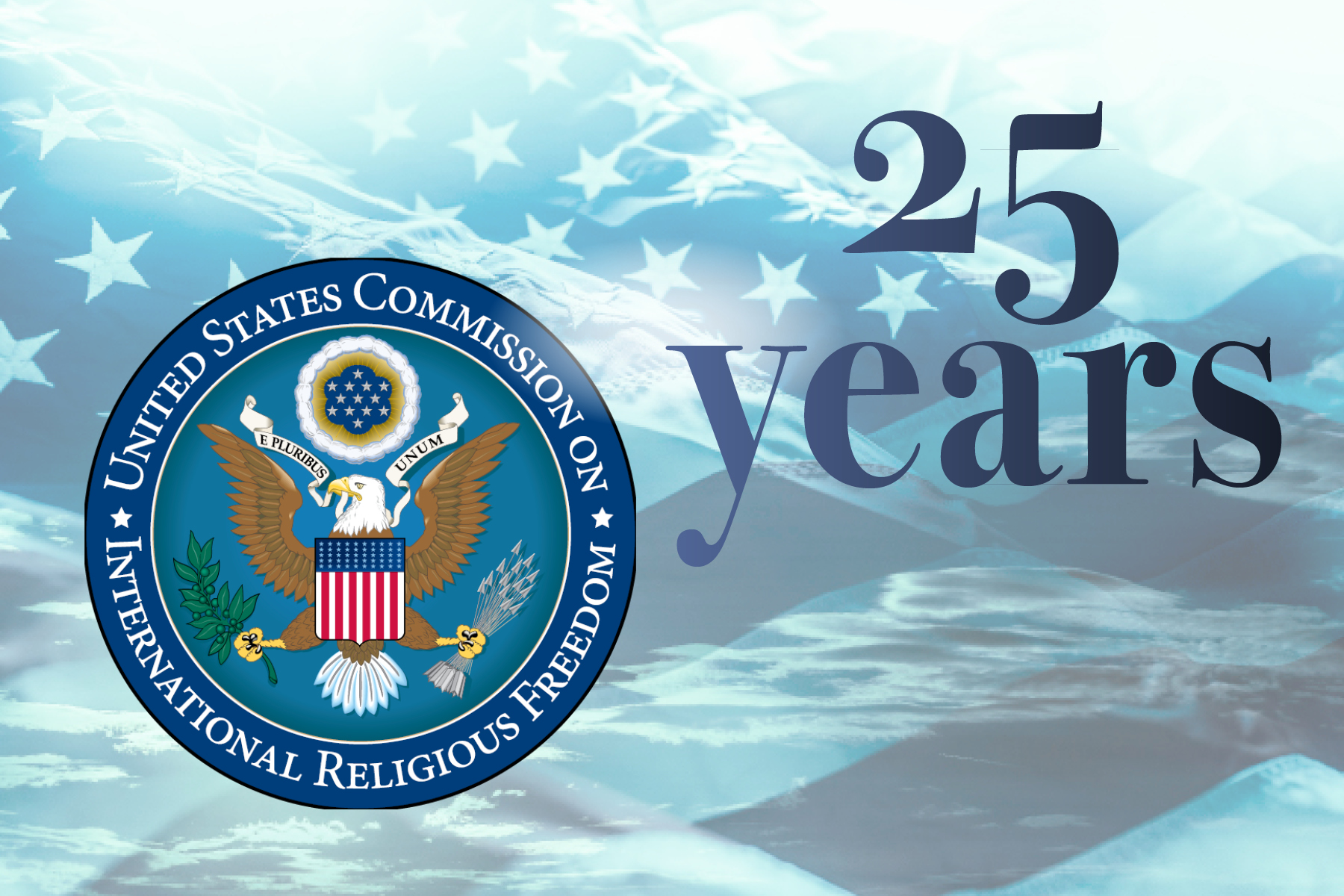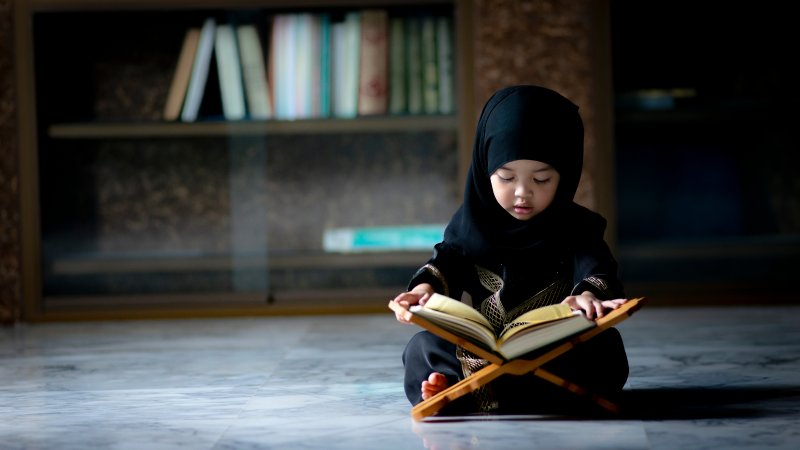“What America Is All About”: USCIRF Celebrates 25 Years of the International Religious Freedom Act
On October 23, the U.S. Commission on International Religious Freedom (USCIRF) celebrated the 25th anniversary of the passing of the International Religious Freedom Act (IRFA), enacted to elevate religious freedom to a key priority of American foreign policy. Included in the bill was the establishment of a non-partisan entity of nine commissioners who report abuses of religious freedom globally, spotlight nations that violate religious freedom and advise Congress, the secretary of state and the president on what courses of action to take. That commission is USCIRF itself.

During the two-hour event, held at the Russell Senate Office Building, USCIRF reaffirmed its commitment to religious freedom around the world, reviewed its accomplishments over the past quarter-century and highlighted the work that must still be done.
“We come from different political parties, different faith and professional backgrounds and different parts of our beloved United States. Yet we all agree on the importance of freedom of religion.”
The event began with IRFA’s original sponsors recalling how religious freedom became the cornerstone of American foreign policy. A panel then discussed the Defending Freedoms Project, a partner of USCIRF’s that encourages members of Congress to advocate for prisoners of conscience. The event concluded with two commissioners reflecting on USCIRF’s challenges, past and present.
USCIRF Chair Rabbi Abraham Cooper explained that, at USCIRF’s inception in 1998, issues of international religious freedom weren’t accorded the widespread media attention they now receive. But, Cooper explained, “the United States no longer stands alone in its support of freedom of religion and belief,” and other nations have joined the U.S. in advocating for that right, with their own monitors on the ground, in government and in the private sector, ensuring that abuses of freedom of religion and belief are reported and dealt with.
Yet and still, “no other country has anything like USCIRF,” Cooper said. “Commissioners are private citizen volunteers. We come from different political parties, different faith and professional backgrounds and different parts of our beloved United States. Yet we all agree on the importance of freedom of religion and belief for everyone, everywhere. We also agree on the need to shine a light on severe abuses of many individuals of all faiths—and of none—for exercising their fundamental God-given right to exercise their religious freedom.”
USCIRF Vice-Chair Frederick A. Davie condemned—along with every other speaker—the terrorist attacks on Israel targeting Jews. He cited USCIRF’s recent statement calling for an end to religious incitement. Pointing out the agency’s accomplishments in persuading certain foreign governments to improve their protection of religious freedom, Davie said that, nevertheless, “We cannot be complacent. State and non-state actors around the globe continue to perpetrate or tolerate severe religious persecution. In too many countries, individuals and communities are still targeted for their religious beliefs, activity or identity or for their religious freedom advocacy.”
Former Senator Joe Lieberman, one of IRFA’s original sponsors in 1998, followed Commissioner Davie to recount how the act came about. Recalling that religious freedom is “what America is all about,” he explained that legislation to enforce accountability regarding religious freedom globally was too obvious to even surface as an original thought. “The idea of having an IRFA was so fundamental to what America is about that we didn’t know why it didn’t already happen,” he said.
Quoting the Declaration of Independence’s assertion of the God-given rights of life, liberty and the pursuit of happiness, Lieberman reminded attendees that God-given rights aren’t restricted to America, but apply everywhere. He commended USCIRF for having “held America true to what America is about,” adding that the work of the next 25 years will be even more important than the previous ones.
IRFA author, former congressman and former USCIRF commissioner Frank R. Wolf stated that: “80 percent of the world’s population lives in a religiously repressive nation.” He recalled that when IRFA was first introduced, there was opposition from the State Department and from the business community. He said that the faith community is what pushed it through. Looking toward the future, Wolf offered specific recommendations: “One: you’ve got to keep it bipartisan. Secondly, the faith community needs to get involved. We need the religious community to engage again and get involved. Next, we need to motivate the young people.”
“America cannot stop all these horrors, but it can shine a light on them and that’s what makes this commission so valuable.”
Wolf insisted that any nation that violates freedom of religion—labeled a Country of Particular Concern (CPC)—that persists in doing so despite warnings, for four years, be subject to economic and diplomatic restrictions in keeping with the severity of the offense. He then urged Congress to increase funding for USCIRF and make its authorization permanent, rather than subject to review and re-authorization every few years.
IRFA cosponsor former senator Don Nickles recalled that, before IRFA, senators and congressmen would visit world leaders and might “haphazardly” bring up religious freedom. “It was Frank Wolf who said, ‘Why don’t we have an independent commission?’ So the idea of having a commission that would expose religious intolerance, religious discrimination, religious punishment, religious death—that was the genesis of this legislation.”
Commissioner David Curry then introduced the panel discussion by giving the history of the Defending Freedoms Project (DFP). Established in 2012 the DFP has advocated for nearly 100 prisoners of conscience. Moreover, he said, certain nations—China, Russia, Iran, Pakistan, Uzbekistan, Vietnam, India, Eritrea and Saudi Arabia among them—have clamped down on religious freedom and its advocates this year. He called the roster of offending countries “a list of shame.” The DFP has gathered a database of nearly 2,000 individuals jailed for their beliefs across these and other nations. The Commissioner asked for a moment of silence as the list of names was projected on a screen.
The three panelists then spoke about the purpose and future of the DFP. Judy Golub, Director of Strategy and Planning for Religious News Foundation/Service and co-founder of the Freedom of Religion or Belief Women’s Alliance, explained how the project came about. The problem, she said, is “we’re so numbed by the numbers, we can’t take it all in.” Taking their cue from the 1970s Soviet Jewry campaign—which reached out to synagogues, temples and campuses with photos of persecuted Jews in the Soviet Union—the DFP personalized the situation. “Individualizing and personalizing really cuts through the noise,” she said, urging that more needs to be done at the grassroots level.
Kimberly Stanton, Democratic staff director of the Tom Lantos Human Rights Commission, recognized the “incredible centrality of advocates for human rights: their willingness. We recognize the risk that people take,” she said. Most countries recognize the U.N. Universal Declaration of Human Rights, but advocating to insist upon those rights on the ground in many countries puts those advocates at risk. She noted that, over the years, 49 members of Congress have advocated for prisoners of conscience and many more are needed.
Sasha LaPonsa, Democratic staff associate of the Tom Lantos Human Rights Commission, ended the panel by reporting the current statistics. There are 78 individuals from 20 different countries who are currently enduring retribution for attempting to affirm their human rights. Sixty-six of those 78 people are imprisoned and the remaining 12 have been released, but under harsh conditions. Of the incarcerated or restricted prisoners of conscience, the DFP is working actively with USCIRF to free the 17 whose religious freedom has been denied.
The afternoon concluded with statements by Commissioners Mohamed Magid and Stephen Schneck. Magid deplored the situation in Israel and the accompanying increase in antisemitism and Islamophobia on American campuses. “I stand with my brothers and sisters,” he said.
Schneck offered a list of targets for the immediate future. “We urge the administration to use the CPC designation more effectively,” he said. “Too many of the State Department’s CPC countries are repeatedly named as such each year, but those designations result in little or no substantive change. Accordingly, we recommend that the State Department impose more meaningful consequences on violator governments when it comes to its CPCs.” Commissioner Schneck also urged Congress to be more vocal in advocating for prisoners of conscience through the DFP.
Interspersed throughout the two hours were messages, both live and taped, from over a dozen U.S. senators and congresspersons.
“Religious freedom is a foundational value of our country,” said Congressman Tracey Mann. “We acknowledge that human rights themselves do not come from a king or from a government. They come from God.”
“IRFA is a simple recognition of a moral imperative,” said Congresswoman Debbie Wasserman Schultz. “Religious freedom is at the center of our [international] human rights agenda. Bigotry does not abide by borders.”
“People just want to be able to get up in the morning to live their faith,” said Senator James Lankford.
Citing the “ancient poison of antisemitism rearing its ugly head again” and religious freedom violations in nations like China, Nicaragua and Nigeria, Senator Marco Rubio said: “America cannot stop all these horrors, but it can shine a light on them and that’s what makes this commission so valuable. Under its watch, no persecutors can hide their dirty work no matter where they live.”
As an organization dedicated to protecting everyone’s basic inalienable right to practice their chosen faith, STAND congratulates USCIRF—and all who contributed to its creation and its success—for 25 years of effectively championing this fundamental human right across the world.







